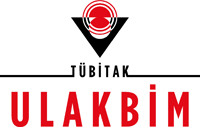SWOT ANALYSIS AND COMPARISON OF SOCIAL COOPERATIVES DESCRIBED AS NEW GENERATION COOPERATIVE WITH TRADITIONALS IN TURKEY
Keywords:
Social cooperative, new generation cooperative, swot analysisAbstract
The goal of this study is to examine the characteristics of social cooperatives which describe themselves as new generation cooperative in Turkey. In this scope we tried to determine the characteristics of social cooperatives that are similar and different from both traditional and new generation cooperatives, and make swot analysis of social cooperatives. In this context we held in-depth interviews with co-founders of three different social cooperatives operating in different areas in Turkey. According to the findings, social cooperatives should be evaluated in a different category from traditional and new generation cooperatives. Because the common points of social, traditional and new generation cooperatives are just the principle of one vote for each member, electing the board of directors among the partners and by the partners, contribution provided to society in accordance with the social responsibility principle. In addition to this, social cooperatives differ from new generation cooperatives mainly in terms of partnership and membership systems, level of partners’ initial capital, patronage dividend, primary purpose, profit orientation, funding conditions, view of professional management, management approach, success in determining management strategy. We also determined “being successful in the activities” as the prominent strenght, “low recognition, insufficient capital, high costs” as the weaknesses, “strenghtening the solidarity economy” as opportunity, and “lack of specific legislation on social cooperatives” as threats to social cooperatives.









